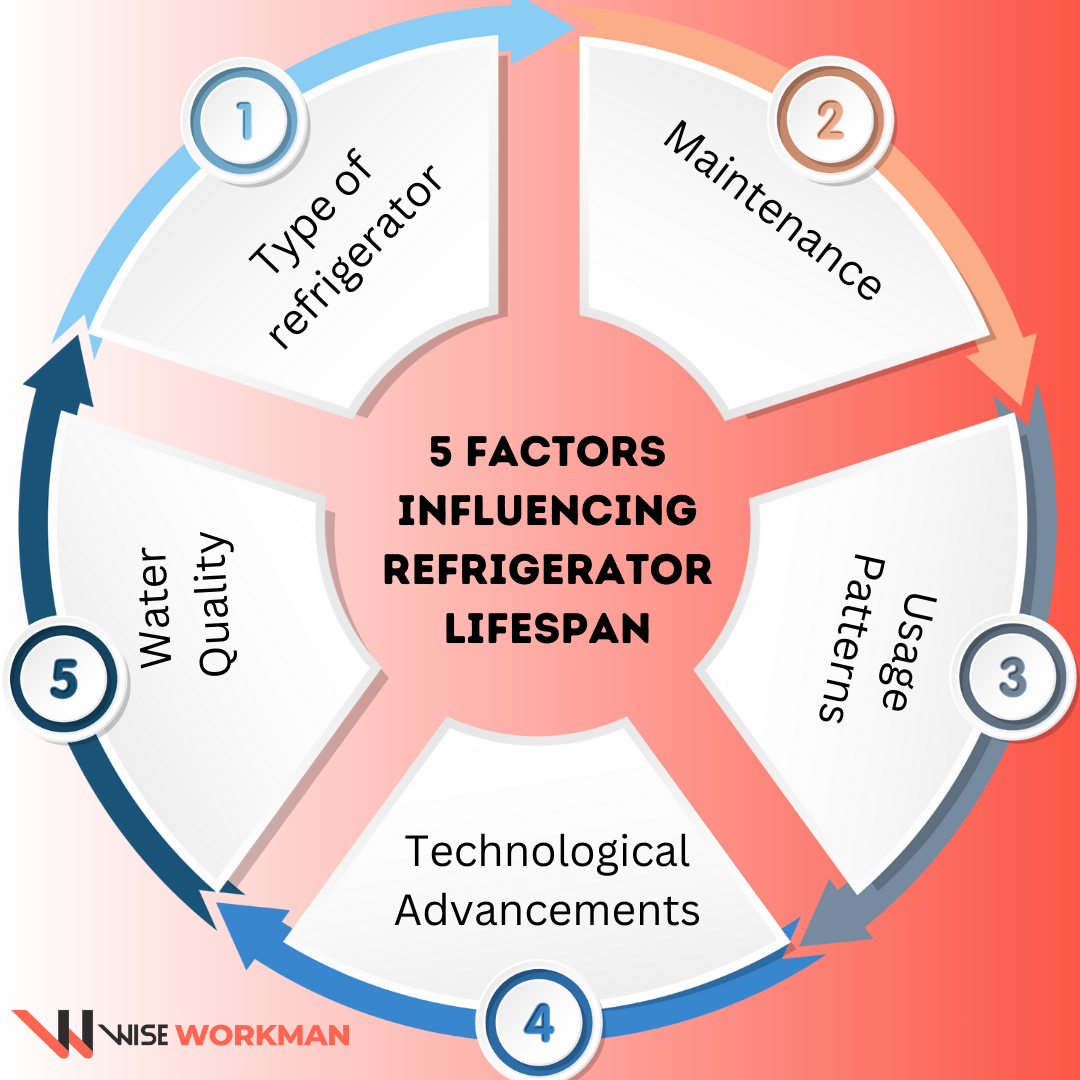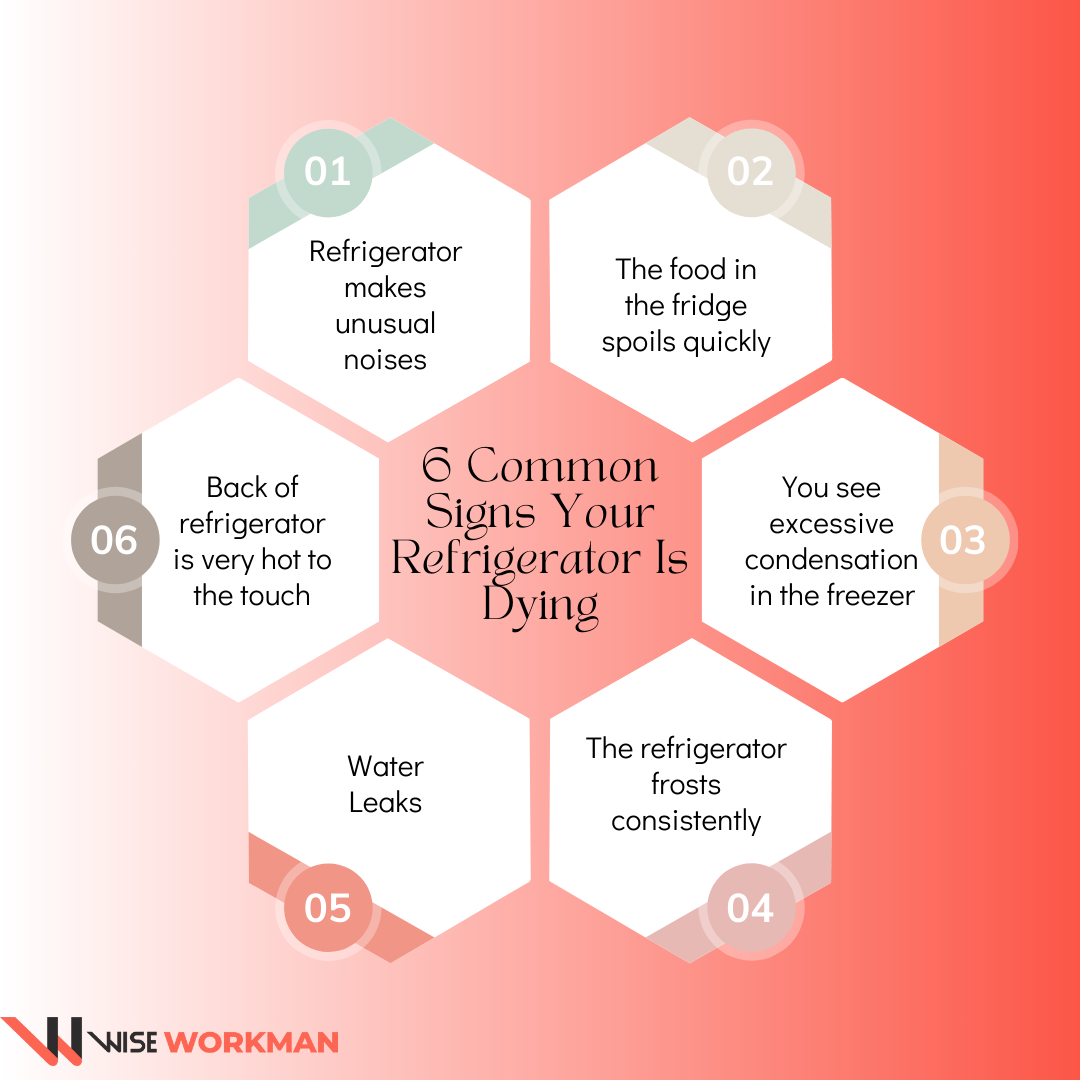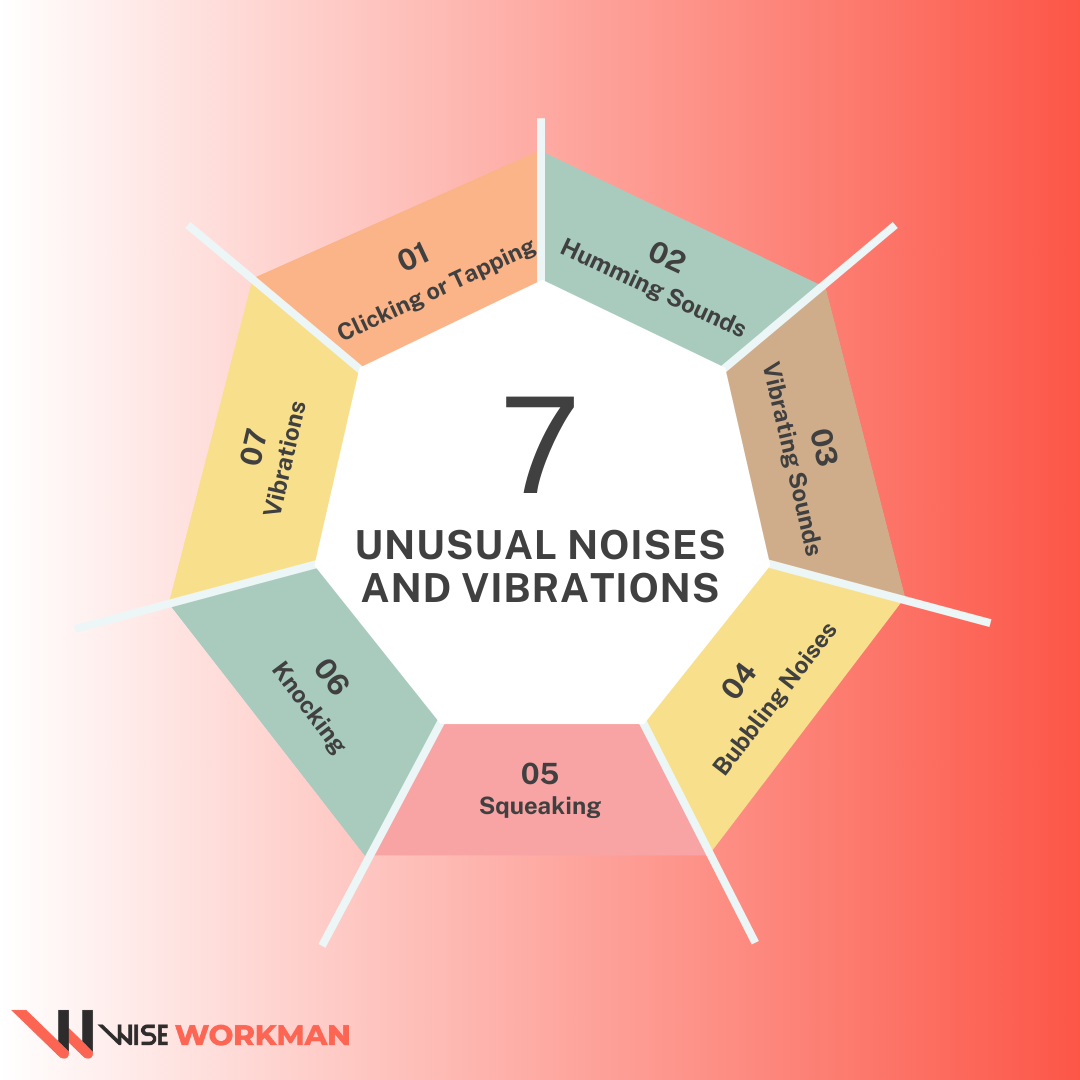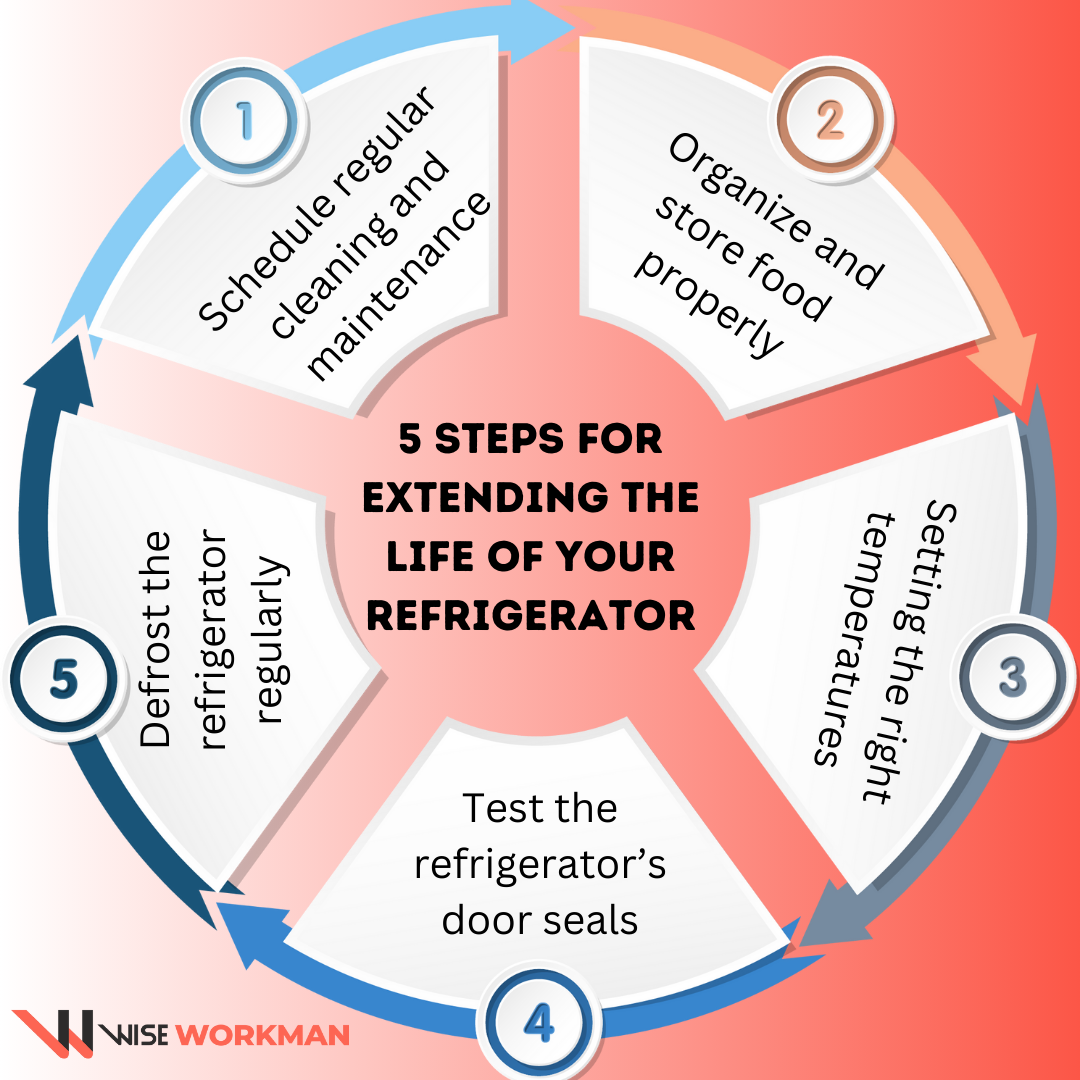How often does your refrigerator run out of fuel? Has it left you wondering how long do refrigerators last?
In this blog post, we will teach you how to pick up signs of deteriorating appliances. This will help you take action so small problems turn into major inconveniences and expenses.
Refrigerators are the single most important appliance in all households. Given that they have become a necessity to keep food items fresh and healthy, they are most prone to damage.
Encountering multiple breads down of the machinery eventually leads to over-investing. You can avoid this by understanding refrigerator lifespan signs. These can range from overheating, and temperature fluctuations to spoiled food.
Keep reading to add to your knowledge!
Like all other electrical appliances, the kitchen too, has freezers and refrigerators with a limited lifespan.
Some believe that refrigerators last anywhere between 10 and 25 years. However, according to the United States Department of Energy, an average refrigerator's longevity is approximately 12 years.
The life expectancy of a refrigerator has been a continuous debate for engineers as well as customers as it determines the consumer’s choice of refrigerator, and thus, the sales.
Keep in mind that the lifespan of refrigerators ranges widely. This means the brand you choose and the type of refrigerator top determines how long it lasts. Some brands are well-known for building quality and durable products.
When investing in appliances like refrigerators, do it according to your daily needs to make it last long. If you belong to the commercial sector, you need a refrigerator that can support the load and provide adequate cooling.

Before buying a refrigerator for your daily requirements or commercial and industrial purposes, you should know the determinants of appliance longevity. Let’s get to discussing the top six factors affecting refrigerator lifespan.
This is the first thing to consider when you go out to shop for refrigerators is the type.
Top-freezer refrigerators have a simple design with fewer components. You can expect these to last longer, somewhere closer to the 20-year mark.
On the contrary, side-by-side and french door refrigerators have complex machinery with ice and water dispensers. This shortens the lifespan to around 14 to 17 years on average.
Between the lifespan of the above two categories is the bottom freezer refrigerator. As the name suggests, these have a freezer compartment in the bottom shelves, making it complex. This limits the lifespan to about 12 years.
This is a factor that depends solely on the consumer of the refrigerator. You should be regularly cleaning the components that tend to catch dust particles the most. Clean the condenser coils and check and replace door seals to increase the efficiency of the refrigerator.
The usage of a refrigerator depends on the purpose. For example, heavy usage for commercial purposes leads to frequent door openings. Additionally, there is overloading the refrigerator with food which can cause it to wear out more quickly.
Refrigerators equipped with advanced features like inverter compressors and energy-efficient designs have a longer lifespan due to their improved efficiency.
If a refrigerator has a water and ice dispenser, the quality of the water supply can affect the appliance's lifespan. For example, hard water causes minerals to build up and damage the interior mechanism.

As discussed earlier, each electrical appliance has a limited life. When the refrigerator has completed its cycle, troubleshooting the appliance ensues. This means you should be quick in recognizing refrigerator decline through appliance wear indicators.
Once your refrigerator crosses its 10-year mark, you will notice it starts malfunctioning more often. So what are the common signs you should be looking at that indicate the refrigerator is dying?
As part of a refrigerator’s normal operation, you will hear the cooling fan running continuously or making some humming sounds. However, this is mild and unappreciable on most days.
If you hear new or unusual sounds, it could indicate an underlying problem with the machinery. Clanking, buzzing, or loud rattling, persistent sounds signal issues with the fan blades or compressor of the refrigerator.
Similarly, no sounds from the refrigerator is also unusual. It could mean that the condenser fan which should run on and off throughout the day, is not working. These repairs are costly, and it might be better to replace the fridge if this condition arises.
This is one of the easiest signs that help recognize that the refrigerator is nearing the end of its lifespan. The food kept in the fridge will go bad before the expiration date of the product.
Inadequate temperatures or constant temperature fluctuations can result in food items repeatedly thawing and freezing. This results in mold and bacterial overgrowth, causing food wastage.
With improper cooling, the food may not stay as cold as it should, or the freezer might not freeze items properly. This also increases the risk of foodborne illnesses. Similarly, fluctuating temperatures within the refrigerator or freezer compartment can be a sign of a failing thermostat or compressor.
If you notice a significant amount of condensation inside the refrigerator, around the door seals or on food items, it is an indication that the seal is no longer effective. While few droplets are normal, water collected on the racks and shelves indicates energy inefficiency and temperature fluctuations.
Huge chunks of ice building up inside the freezer despite consistent cleaning is a sign of a malfunctioning defrost system. This mostly indicates a faulty thermostat or a defrost timer.
However, it is also possible that the refrigerator’s seal is broken. A sign of a dying refrigerator that you will notice is that as the air escapes, the freezer does not chill the food as much.
You notice puddles of water around the fridge or visible leaks inside or around the refrigerator. This is a sign of a malfunctioning defrost system or a broken water line or drainage pan. Keep looking for signs for leaks as these repairs are costly.
Like every other electrical appliance, refrigerators too can overheat. You will notice that the back of the freezer compartment is hot to the touch. This can result from excessive working of the fans and coils, or an indication of poor maintenance.
So far, we discussed common physical signs that your refrigerator is going out and these are some of the first ones to manifest. However, a refrigerator's declining energy efficiency is another sign that it is nearing the end.
Keep reading as we will talk about identifying energy efficiency drops.
The efficiency output of the refrigerator depends on multiple factors, such as the power output, temperature, and machinery.
The ideal temperature of a refrigerator ranges between 5 °C and -18 °C. For every added degree of refrigeration output, approximately 6% more electricity is needed. This automatically means an increase in the electricity bill.
The other contributing factor to higher electricity bills is the dirt accumulation on the condenser coils on the back of the refrigerator. Impaired impede heat exchange automatically causes the compressor to run for longer.
If you see the insulation within the refrigerator walls and door gaskets deteriorating, it is a sign of appliance efficiency drop. This is because it allows warm air to infiltrate the appliance. As a result, it works harder to maintain the desired temperature and uses higher energy.
Although food products have a natural phenomenon of deterioration, the science behind food spoilage is closely related to temperature fluctuations. Hence, temperatures above the ideal range, typically between 60 and 90 degrees (F) result in a faster growth rate of microorganisms.
This “danger zone" of temperature range allows bacteria and mold to multiply on meat, poultry, and dairy. It often leads to food poisoning and diarrheal symptoms. This warrants individuals to recognize refrigerator performance decline timely.

You can detect refrigerator’s mechanical problems by paying attention to the unusual sounds. It can be an indication of a potential breakdown of the components. Here’s what you might hear from the appliance:
Once you have detected signs that a refrigerator is nearing its end, acting promptly on refrigerator issues becomes crucial. This is key in saving yourself from buying a new refrigerator altogether and avoiding costly repairs.
The greatest benefit of timely action addresses the issue of improper cooling. Temperature fluctuations result in food spoilage, which not only wastes money but is a source of foodborne illnesses.
In simpler words, early repairs are straightforward and do not incur heavy losses.

If you are looking to maximize investment in electrical appliances, adopt our top five simple, yet practical checklists for prolonging refrigerator lifespan. This is what you can do as a homeowner to save on costs:
Carry out a bi-annual cleaning spree of the interior of your refrigerator. Remove any spilled or expired food from the freezer. Remove obstructions from around the freezer to ensure a steady air supply.
This keeps the condensers on the back or underneath the appliance dust-free and ensures efficient heat exchange.
Besides this, hire a technician annually to run a professional maintenance check identify and address issues.
Placing food items is a skill as you can maximize airflow and cooling. For example, pack the items and use the built-in compartments to stack it and keep the produce longer.
Another key tip is to avoid overloading the refrigerator. This again prevents a steady airflow and makes it harder for the appliance to maintain consistent temperatures.
A higher or a lower temperature than the recommended range uses more energy. Keep the temperatures set to 37°F for the refrigerator and 0°F for the freezer to reduce the energy load on the compressor.
Cracked, damaged, or worn-out door seals should be replaced to improve air efficiency inside the refrigerator. You can do this by simply putting a bill in the door seal. If it moves, it means you need to repair it immediately.
If you see frost and ice buildup reach a quarter of the thickness inside the freezer, you should scrape it off immediately. Do not use blunt objects or it may puncture the inner walls.
When we talk about maintaining electrical appliances, it is important to know how long do refrigerators last. This is an easier estimate when you know the damaging risk factors andthe best way to prevent it.
Some of the signs of a refrigerator with poor health that are the easiest to identify include unusual noises, temperature fluctuations, and energy inefficiency. Do not wait for the refrigerator to fully stop functioning.
Our conclusion on recognizing refrigerator issues demands a timely intervention to preserve the functioning. These include scheduled maintenance and cleaning rounds, replacing dusty coils and fans, and ensuring a steady airflow.